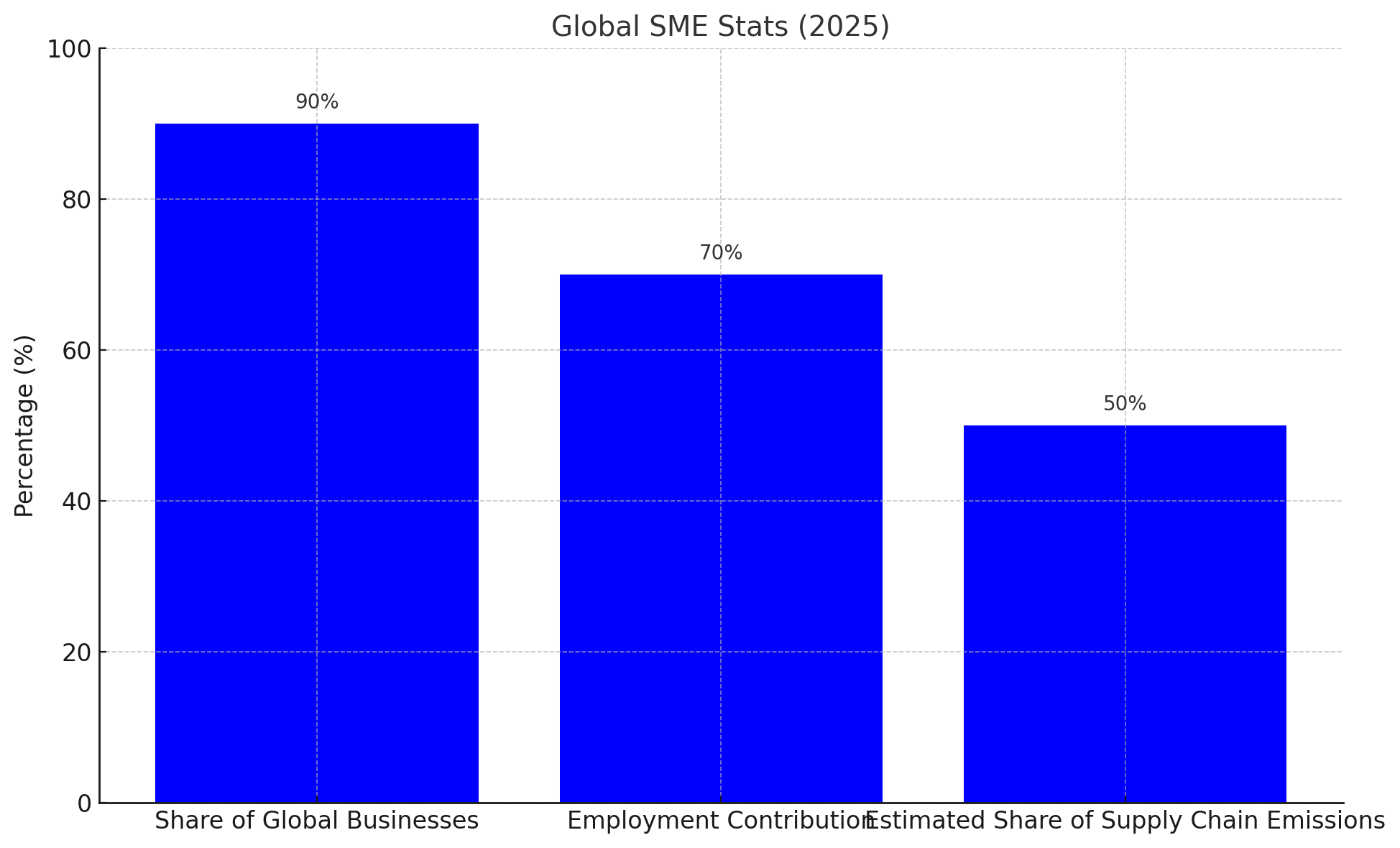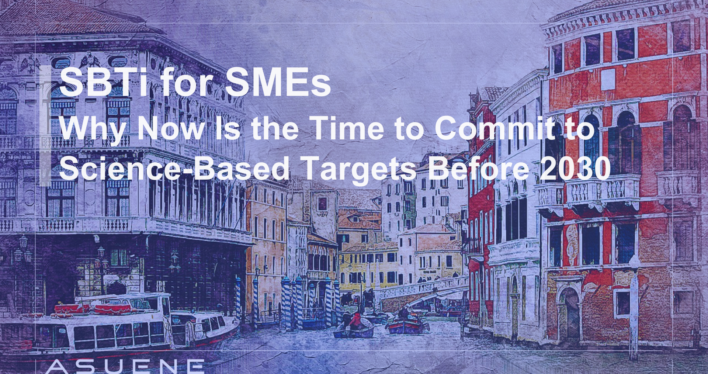- Article Summary
-
As the climate crisis accelerates and regulatory landscapes tighten globally, small and medium-sized enterprises (SMEs) are facing growing pressure to demonstrate credible climate action. While traditionally considered outside the direct scope of climate regulations, SMEs are now seen as pivotal players in global decarbonization—particularly within value chains. In response, the Science Based Targets initiative (SBTi) has created a streamlined pathway for SMEs to commit to meaningful climate targets. This article explores why now—with the 2030 deadline looming—is the ideal time for SMEs to engage, and how doing so can enhance their resilience, competitiveness, and access to capital.

The Role of SMEs in Achieving Net Zero
SMEs make up approximately 90% of businesses worldwide and are deeply embedded in both upstream and downstream operations of supply chains. Their carbon impact, while fragmented, is substantial in aggregate. Multinational corporations increasingly rely on their SME partners to meet their own Scope 3 emissions reduction targets, especially under frameworks like CDP, TCFD, and CSRD.

| Global SME Stats (2025) | Data |
|---|---|
| Share of Global Businesses | 90% |
| Employment Contribution | 70%+ |
| Estimated Share of Supply Chain Emissions | 50%+ |
As of 2025, more than 6,000 SMEs have already committed to SBTi targets, and the initiative aims to surpass 30,000 by 2030. This massive scale-up underscores both the opportunity and urgency for SMEs to act.
Why Now? The Strategic Timing of SBTi Commitment
Committing to science-based targets before 2030 isn’t just about environmental responsibility—it’s increasingly a business imperative. Key reasons SMEs should act now include:
- Rising Supply Chain Pressure
Large corporates are embedding SBTi-aligned criteria into procurement processes, with preference for low-carbon suppliers. - Access to Green Finance
Lenders and investors are prioritizing ESG-compliant SMEs, and verified SBTi targets serve as credible indicators of climate responsibility. - Regulatory Forecasting
Though SMEs are often exempt from direct regulations like the EU’s CSRD, indirect obligations via corporate clients are growing. - Cost and Efficiency Gains
Target-setting helps identify emissions hotspots, leading to process optimization and energy savings. - Reputational Differentiation
Climate leadership is a clear brand advantage, particularly in B2B and export-driven sectors.

The SBTi SME Pathway: Simplified for Action
Recognizing resource constraints in SMEs, SBTi has designed a specialized approach:
| Feature | Description |
| Flat Fee | One-time fee of $1,000 for target validation |
| No Emissions Inventory Needed | SMEs can submit commitments without full carbon accounting upfront |
| Pre-defined Targets | Choose from pre-set absolute or intensity-based targets aligned with 1.5°C |
| Short Approval Timeline | Targets validated within weeks |
| Public Recognition | Listing on SBTi and partner platforms |
This simplified pathway removes many of the barriers that once hindered SME participation and aligns with international climate frameworks.
Getting Started: A Roadmap for SMEs
SMEs looking to commit should follow these steps:
- Assess Readiness
Determine emission sources and identify key stakeholders internally. - Choose the Right Target
Use SBTi’s SME Target Setting Tool to select a suitable pathway. - Submit Commitment Form
Apply via the official SBTi portal with a simple declaration. - Begin Implementation
Track emissions, initiate reduction actions, and engage suppliers. - Communicate Progress
Report actions in sustainability reports, procurement platforms, and stakeholder communications.
Conclusion
For SMEs, joining the SBTi movement is no longer a “nice-to-have” but a strategic necessity. With climate disclosure frameworks maturing and buyer expectations rising, early commitment positions SMEs for long-term success. The pathway is simpler than ever, and the benefits—from market access to operational savings—are tangible.
The window of opportunity is now. By stepping up before 2030, SMEs will not only meet expectations but shape the future of climate-conscious enterprise.
Why Work with ASUENE Inc.?
Asuene is a key player in carbon accounting, offering a comprehensive platform that measures, reduces, and reports emissions, including Scope 1-3, with expertise in decarbonization. Asuene serves over 10,000 clients worldwide, providing an all-in-one solution that integrates GHG accounting, ESG supply chain management, a Carbon Credit exchange platform, and third-party verification.
ASUENE supports companies in achieving net-zero goals through advanced technology, consulting services, and an extensive network.


